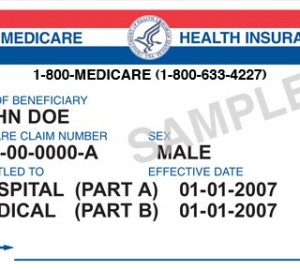TENNESSEE
Diversicare Health Services Inc. agreed to pay $9.5 million to resolve allegations that it violated the False Claims Act by knowingly submitting false claims to Medicare, officials stated.
The false claims to Medicare were for rehabilitation therapy services that were not  reasonable, necessary, or skilled, the Department of Justice announced Friday.
reasonable, necessary, or skilled, the Department of Justice announced Friday.
The settlement also resolves allegations that Diversicare submitted forged pre-admission evaluations of patient need for skilled nursing services to TennCare, the state of Tennessee’s Medicaid Program.
Diversicare, based in Brentwood, Tennessee, provides skilled nursing and rehabilitation services at about 74 facilities across the country.
“Today’s settlement demonstrates our commitment to protect patients and taxpayers by ensuring that the care provided to Medicare and Medicaid beneficiaries is dictated by their clinical needs and not by their providers’ financial interests,” said Assistant Attorney General Jody Hunt of the Department of Justice’s Civil Division.
Adding, “Nursing home facilities provide important services to our vulnerable elderly population, and those facilities must be held to account when they provide patients with unnecessary services that may adversely impact their well-being and waste taxpayer dollars.”

“Families expect that their loved ones will receive the necessary care to improve their health and quality of life when they entrust them to a facility for care,” said U.S. Attorney Don Cochran for the Middle District of Tennessee.
Adding,“companies who engage in a practice of cheating and exploiting public healthcare programs, while subjecting patients to unreasonable and unnecessary treatments in order to increase their profits, will pay a substantial penalty.”
The government alleged that from Jan. 1, 2010, through Dec. 31, 2015, Diversicare’s corporate policies and practices were designed to place as many beneficiaries in the highest level of Medicare reimbursement — Ultra High — irrespective of the individual clinical needs of the patients.
These profit-driven policies and practices resulted in the provision of unreasonable, unnecessary, and unskilled therapy to many beneficiaries in Diversicare’s skilled nursing facilities.
The government alleged that Diversicare submitted claims for Ultra High therapy levels despite the following evidence:
(1) the frequency and duration of physical or occupational therapy were not reasonable or necessary for the patient.
(2) The intensity of the physical or occupational therapy was inappropriate for the patient and not reasonable or necessary.
(3) Services did not require the skills of a therapist to perform them.
(4) Speech therapy was medically unnecessary.
This included specific instances of improper co-treatment in order to achieve minute thresholds, repetitive and unskilled exercises that did not match plan of care goals to obtain additional minutes, engaging patients in activities contraindicated by underlying medical conditions, inflating ADL scores, extending patient lengths of stay beyond what was medically indicated, billing for services that were not provided, using budgets, goals, and quotas to ensure Ultra High therapy was maximized, and threatening or undertaking adverse actions against employees if they failed to meet the budgets, goals, or quotas.
The government also alleged that Diversicare submitted forged, photocopied, or pre-signed physician signatures on pre-admission evaluation certifications required in the submission of claims to TennCare for nursing facility services rendered to TennCare beneficiaries at its associated Tennessee skilled nursing and rehabilitation facilities.
TennCare is Tennessee’s Medicaid program jointly funded by the state of Tennessee and the federal government.
As part of the settlement, Diversicare entered into a five-year Corporate Integrity Agreement (CIA) with the HHS-OIG requiring, among other things, the implementation of a risk assessment and internal review process designed to identify and address evolving compliance risks.
The CIA requires training, auditing, and monitoring designed to address the conduct at issue in the case, according to officials.
“This settlement sends a strong message to nursing home chains that provide medically unnecessary therapy services, as alleged in this case,” said Derrick L. Jackson, Special Agent in Charge at the U.S. Department of Health and Human Services, Office of Inspector General in Atlanta. “We will aggressively investigate providers who waste taxpayer dollars and work to recover any money that has been overpaid.”
“We’re committed to playing a part in protecting the tax dollars used to support our most vulnerable residents,” said Tennessee Bureau of Investigation Director David Rausch. “When companies take advantage of the Medicaid system, we all lose. We’re gratified by this settlement and hope it sends another strong message that, together, we will continue to pursue and prosecute those who profit in illegal ways.”
The settlement, which was based on the company’s ability to pay, resolves allegations originally brought in lawsuits filed under the qui tam, or whistleblower, provisions of the False Claims Act by Mary Haggard and Bryant Fitzmorris, former Diversicare employees.
The act permits private parties to sue on behalf of the government for false claims for government funds and to receive a share of any recovery.
Haggard will receive approximately $1.4 million and Fitzmorris will receive approximately $145,350.
DOJ NOTED:
The settlement was the result of a coordinated effort by the Civil Division of the Department of Justice, the U.S. Attorney’s Office for the Middle District of Tennessee, the Office of Inspector General of the Department of Health and Human Services, and the Tennessee Bureau of Investigation.

